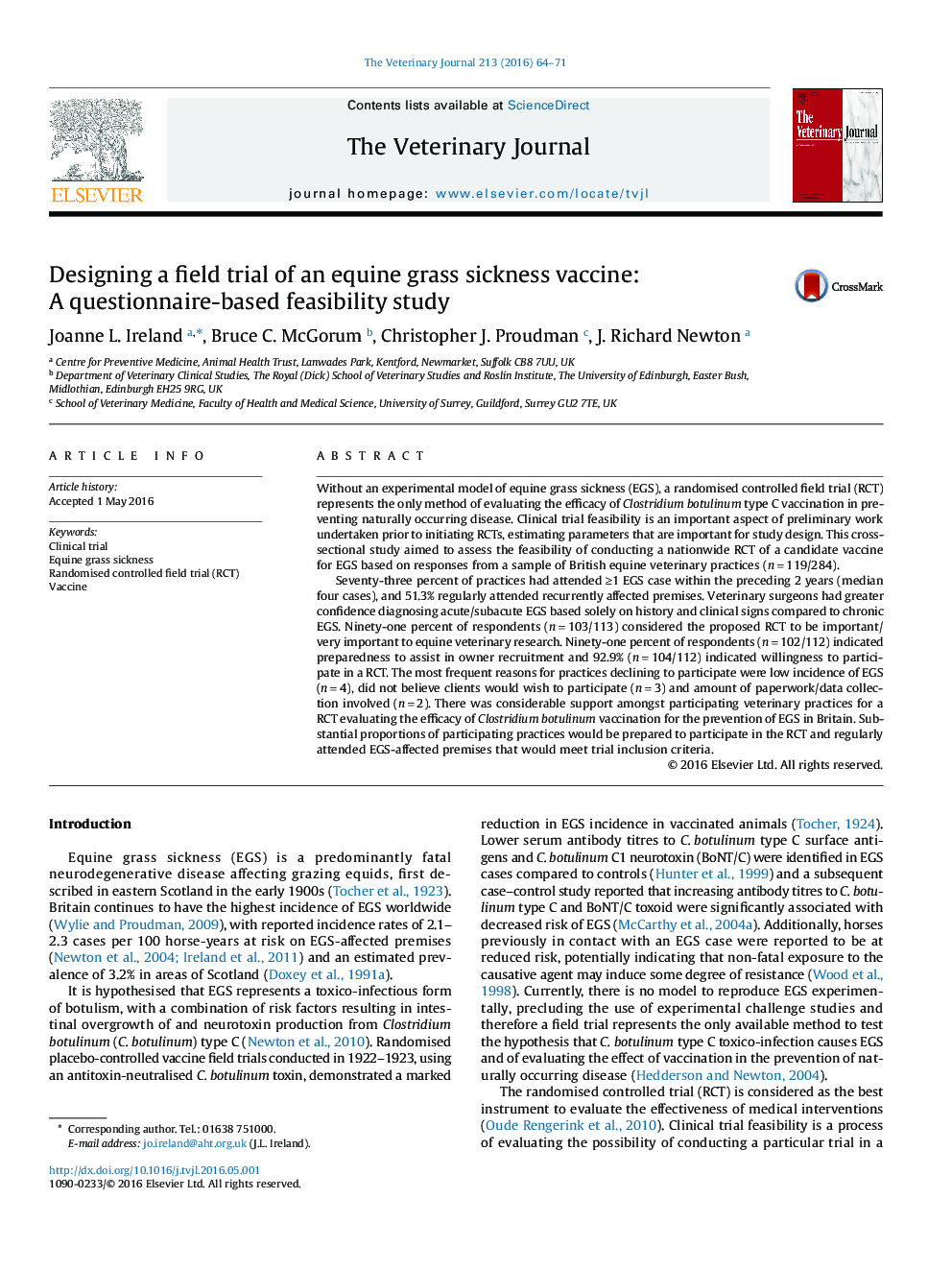| Article ID | Journal | Published Year | Pages | File Type |
|---|---|---|---|---|
| 2463688 | The Veterinary Journal | 2016 | 8 Pages |
•First report of a feasibility study to inform RCT design in veterinary medicine.•73% of practices had attended ≥1 equine grass sickness (EGS) case in the past 2 years.•Higher proportion of EGS-affected premises with recurrent cases in Scotland.•93% of practices would be willing to participate in a field vaccine trial for EGS.•Low EGS incidence, client factors and paperwork were cited as barriers to participation.
Without an experimental model of equine grass sickness (EGS), a randomised controlled field trial (RCT) represents the only method of evaluating the efficacy of Clostridium botulinum type C vaccination in preventing naturally occurring disease. Clinical trial feasibility is an important aspect of preliminary work undertaken prior to initiating RCTs, estimating parameters that are important for study design. This cross-sectional study aimed to assess the feasibility of conducting a nationwide RCT of a candidate vaccine for EGS based on responses from a sample of British equine veterinary practices (n = 119/284).Seventy-three percent of practices had attended ≥1 EGS case within the preceding 2 years (median four cases), and 51.3% regularly attended recurrently affected premises. Veterinary surgeons had greater confidence diagnosing acute/subacute EGS based solely on history and clinical signs compared to chronic EGS. Ninety-one percent of respondents (n = 103/113) considered the proposed RCT to be important/very important to equine veterinary research. Ninety-one percent of respondents (n = 102/112) indicated preparedness to assist in owner recruitment and 92.9% (n = 104/112) indicated willingness to participate in a RCT. The most frequent reasons for practices declining to participate were low incidence of EGS (n = 4), did not believe clients would wish to participate (n = 3) and amount of paperwork/data collection involved (n = 2). There was considerable support amongst participating veterinary practices for a RCT evaluating the efficacy of Clostridium botulinum vaccination for the prevention of EGS in Britain. Substantial proportions of participating practices would be prepared to participate in the RCT and regularly attended EGS-affected premises that would meet trial inclusion criteria.
